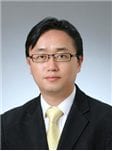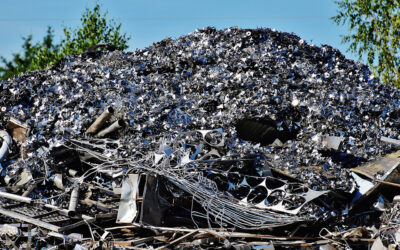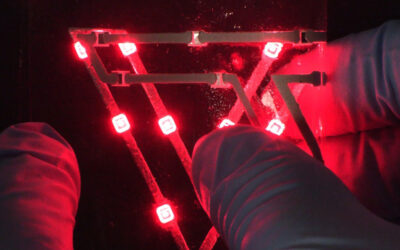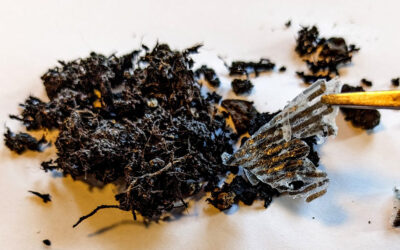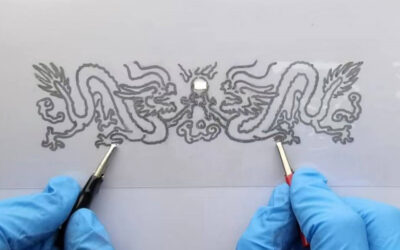 The atmosphere here in the Wiley-VCH editorial offices is buzzing as we prepare to launch the latest member of our materials family, Advanced Electronic Materials. We’re optimistic that the journal will be fully charged with top-class electronics research from around the world, and to prepare for this exciting event, we’re conducting interviews with the newly appointed members of the Executive Advisory Board. This time, it’s the turn of Sang-Woo Kim of Sungkyunkwan University (SKKU) in Korea, who spoke with Matthew Smyllie.
The atmosphere here in the Wiley-VCH editorial offices is buzzing as we prepare to launch the latest member of our materials family, Advanced Electronic Materials. We’re optimistic that the journal will be fully charged with top-class electronics research from around the world, and to prepare for this exciting event, we’re conducting interviews with the newly appointed members of the Executive Advisory Board. This time, it’s the turn of Sang-Woo Kim of Sungkyunkwan University (SKKU) in Korea, who spoke with Matthew Smyllie.
Professor Kim has achieved a lot in what is so far a relatively short career. Starting out in his home country of Korea, he obtained his B.S. in materials science and engineering at SKKU in 1998, followed by an M.S. in the same subject at the Gwangju Institute of Science and Technology in 2000. For his Ph.D. in electronic science and engineering, awarded in 2004, he moved to Kyoto University in Japan. After a short stint as a postdoctoral researcher in Kyoto, he spent time as a research associate at the University of Cambridge in the UK, before returning to his native Korea to begin his career as an academic.
Between 2005 and 2009, he was a lecturer and assistant professor at the Kumoh National Institute of Technology in Gumi, before he returned to where it all began at SKKU to take up a role of assistant professor. Nowadays, he is an associate professor and an SKKU Fellow Professor in the School of Materials Science and Engineering and the SKKU Advanced Institute of Nanotechnology (SAINT)at SKKU. His research interests include piezoelectric and triboelectric materials, piezotronics and piezophototronics, flexible solar cells, and 2D materials, including graphene and hexagonal boron nitride.
Already, the list of honors and awards against his name is quite impressive, and one cannot help but wonder how long this list will be by the time he reaches retirement age. In 2012, he was honored as a National R&D Top 100 Researcher by the Korean Government, and in 2013, the Korean Institute of Metal and Materials bestowed upon him the Young Researcher Award. Very recently, in 2014, his research was ranked in the Top 50 Fundamental Research by the National Research Foundation of Korea.
All in all, it’s an impressive CV. I spoke with Prof. Kim about his research, his appointment to the board, and his hobbies.
On your research and science…
What motivated you to specialize in piezoelectric materials as one of your main areas of research?
“I started my research career with a curious thought: what if we take advantage of the piezoelectric effect, which converts mechanical force into an electrical signal, to introduce state-of-the art wearable devices? Since almost all electronics we humans have or wear are continuously exposed to mechanical strain, externally as well as internally, I thus believed that piezoelectric-materials-based energy-harvesting systems would be highly promising.”
In which area of electronics do you expect there to be considerable potential for future development?
“I suppose that there is great potential in the near future in the field of human interface electronics, ranging from electronic skin to body-implantable devices, as well as electronic systems in driverless cars.”
What do you think has been the most important contribution to electronic materials science of recent times?
“In recent research scenarios, the importance of materials has been gradually magnified in various industries, and many suggestions in the field of electronic devices have been made, and we have been trying to find new electronic materials to introduce multi-functional devices.”
If you had the opportunity to meet any one scientist from the whole of history, who would you choose and why?
“If I had the chance to meet any scientist from the whole of history, I would like to meet Thales [of Miletus], who showed his competence in such various fields as, for example, philosophy, mathematics, astronomy, and engineering. He was the first to disagree with the mythological explanations in nature and instead to define general principles and to set forth hypotheses in terms of science and philosophy. In particular, he was, as a philosopher, the first person who tried to understand the nature of matter. He claimed that water was the primal origin and the womb of all things, because it can change its shape and state very easily. Regarding this, I would find it very interesting to see him and talk about the many issues about materials as a materials scientist.”
On your new role as a board member…
How do you feel about your role as a member of the Advanced Electronic Materials Executive Advisory Board?
“As one of the Executive Advisory Board of Advanced Electronic Materials, I think it is quite important for successful journal launching not only to publish research results that have the power to influence, but also to provide a convenient publication process to satisfy authors. In addition, I think it is important to discuss how to distinguish the journal from while creating a synergy effect with its sister journals of the Advanced Materials family.”
What experience and expertise do you think you will be able to bring to your new role that will help the new journal to develop?
“At present, as I have been working in an editorial role for other journals and performing various duties as a scientific program committee member in many international communities, I believe I am able to provide numerous ideas and to make beneficial comments about the editorial strategy to promote the development of our new journal.”
From your perspective, what are the greatest challenges and opportunities that lie ahead for scientific publishing?
“There have been many ethical issues, such as plagiarism, manipulation of results, and general practices that a research paper is underestimated with just its impact factor. In addition, it is true that a conflict occurs between the author and reviewer regarding a proper review process. We will make a constant effort to try and figure out these problems sensibly.”
And finally, a little about you as a person…
Do you have any great interests or hobbies outside of science and your research?
“Regretfully, I don’t have any big hobbies, but I sometimes watch a movie or go skiing.”
When you have time to take a vacation, do you prefer to have an active one or a relaxing one?
“When I have a lot of work, there is not so much time to spend with my family. Whenever I am at home (generally at the weekends), I prefer to enjoy life with my family. But in the case of having some alone time, I like to be relaxed. This is the perfect time to build up a new idea or plan and to do some self-reflection.”
Over the course of your career, you have spent time in Japan and the UK as well as your home country of Korea. To any young scientists thinking of studying or working in a foreign country, what would be your biggest piece of advice?
“I would say that science is one of the cultures and that sharing its various colors with co-workers is truly informative. I’ve learnt how to approach people in numerous ways since each country has a diverse perspective and culture, which allows one to make a conclusion in different aspects. I believe it was such a terrific and meaningful time to interchange our knowledge and experience during the program.”
We are very grateful to Sang-Woo Kim for his time in answering these questions. Please join me in welcoming him to the Executive Advisory Board and wishing him all the success in his new role with Advanced Electronic Materials.

